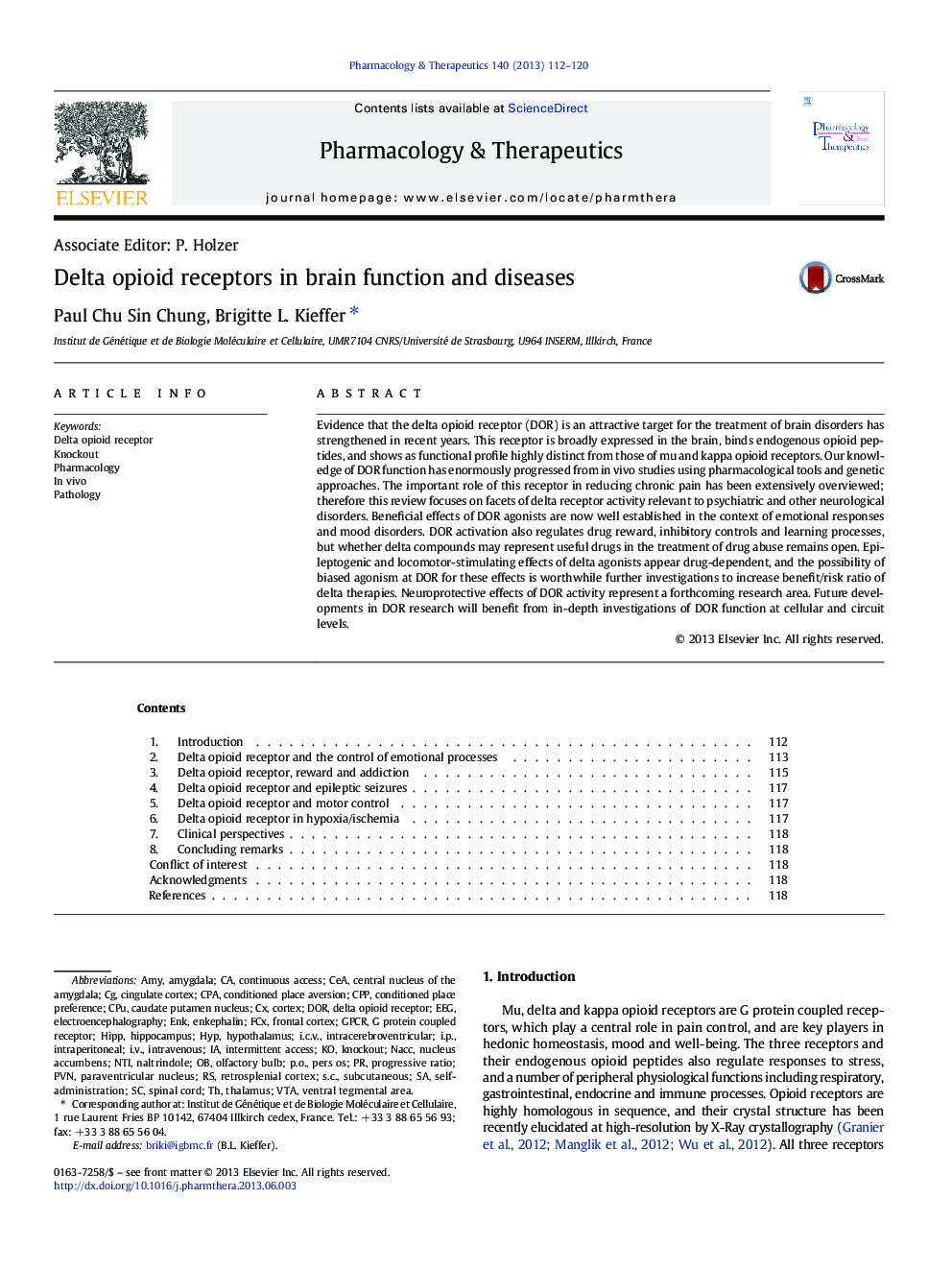| Article ID | Journal | Published Year | Pages | File Type |
|---|---|---|---|---|
| 2563232 | Pharmacology & Therapeutics | 2013 | 9 Pages |
Evidence that the delta opioid receptor (DOR) is an attractive target for the treatment of brain disorders has strengthened in recent years. This receptor is broadly expressed in the brain, binds endogenous opioid peptides, and shows as functional profile highly distinct from those of mu and kappa opioid receptors. Our knowledge of DOR function has enormously progressed from in vivo studies using pharmacological tools and genetic approaches. The important role of this receptor in reducing chronic pain has been extensively overviewed; therefore this review focuses on facets of delta receptor activity relevant to psychiatric and other neurological disorders. Beneficial effects of DOR agonists are now well established in the context of emotional responses and mood disorders. DOR activation also regulates drug reward, inhibitory controls and learning processes, but whether delta compounds may represent useful drugs in the treatment of drug abuse remains open. Epileptogenic and locomotor-stimulating effects of delta agonists appear drug-dependent, and the possibility of biased agonism at DOR for these effects is worthwhile further investigations to increase benefit/risk ratio of delta therapies. Neuroprotective effects of DOR activity represent a forthcoming research area. Future developments in DOR research will benefit from in-depth investigations of DOR function at cellular and circuit levels.
